In pre-First World War London, an Egyptian-born journalist and writer founded a paper to report international struggles against colonialism and racism. Yasmeen Arif discusses the impact of Dusé Mohamed Ali, founder of the African Times and Orient Review.
Dusé Mohamed Ali was a man whose life spanned careers as well as continents. An actor, publisher, editor and journalist, he travelled across the world, lectured in the United States and worked with Marcus Garvey (1) before ending his days in Nigeria, where he is considered to be a central figure in the growth of a national Nigerian consciousness and the student movement. But Ali is also part of British Black Muslim heritage. He studied in London, was a prominent figure in British-based Muslim circles, and perhaps most importantly, between 1912 and 1920 he published and edited his international paper The African Times and Orient Review from 138 Fleet Street.
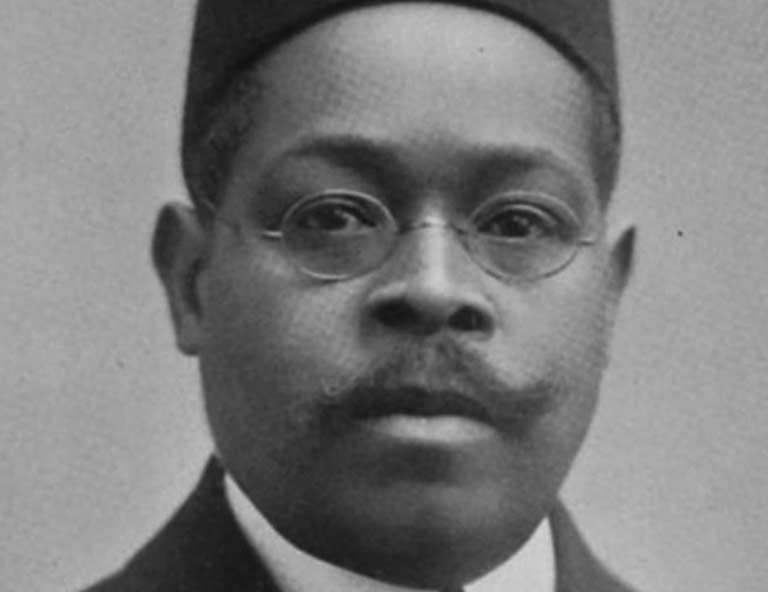
Born in Alexandria in 1866 to an Egyptian father and Sudanese mother, Ali was sent to the UK for education at the age of nine. After losing most of his family in the 1881-2 National Revolution, he returned from Egypt to Britain and became an actor and producer (5). Although as a black actor, his career was obstructed by racial prejudice (1), he travelled across the country and to the United States, and is thought to be possibly the first African to play Othello (5). His ambitions, however, were not limited to acting. Ali could in fact be described as an entrepreneur, as he turned his hand to various trades and careers and seemed to always have multiple projects on the go. During his London years, his achievements included acting as the Vice-President of the London-based Central Islamic Society, setting up a fund for the widows and orphans of Indian Muslim soldiers (3), and founding the Anglo-Ottoman society.
Alongside acting and public work, Ali was a prodigious writer who produced plays, articles, historical accounts and at least one novel. His history of colonial oppression in Egypt, In the land of the pharaohs, detailed British and European involvement as well as the resistance of Egyptian people to colonial rule. Written in response to an imperialist speech by the former US President Roosevelt, which condemned demonstrations by Egyptian nationalist students, Ali’s passionate and eloquent criticism of European colonialism influenced the feelings of many other intellectuals. Although Ali was later accused of having plagiarised parts of the work, In the land of the Pharaohs is still considered to have had a significant impact on black Americans’ interest in African history (2).
Arguably Ali’s most significant achievement was founding the African Times and Orient Review, the newspaper that he edited between 1912 and 1920. The paper had a limited circulation and was under constant financial stress throughout its existence, forcing publication to halt on several occasions before it briefly relaunched in 1920 as The African and Orient Review (3). These difficulties, however, cannot undermine the significance of the paper’s existence. The historian Ian Duffield argues that, unlike Ali’s history In the land of the Pharaohs which had been targeted towards a British audience, the African Times and Orient Review was ‘primarily aimed at English-speaking Afro-Asians’, (2; p 165). Contributors to the African Times and Orient Review included individuals who would become prominent anticolonial nationalist leaders, including Herbert Macaulay of Nigeria, considered the founder of Nigerian nationalism, the Egyptian nationalist writer Muhammad Farid Bey, and the African American intellectual Booker T. Washington (1; p.xvi). As a paper written for colonised people, largely written by colonised people, the Review offered a refreshing intellectual forum for information, discussion and debate. Its impact is suggested by the hostility it aroused in the British colonial administration: in 1914 Sir George Fiddes, an official in the Colonial Office, fumed:
“His paper is a notorious disseminator of sedition and lies mainly circulated among Mohammedans. A good deal of space is devoted to Indian and Egyptian ‘grievances’”(3; p127)
One of the most prominent future intellectuals contributing to the African Times and Orient Review was the Black activist and Pan-Africanist leader and public figure, Marcus Garvey. As a student in London in the early 1910s, Garvey met Ali and wrote for the African Times and Orient Review. Professor Khalil Mahmud of Ibadan University, who wrote the introduction to In the Land of the Pharaohs’ second edition (1), suggests that Ali’s knowledge of African history, geography etc were profound influences on Garvey, as was perhaps, Duse’s heritage as a Muslim; Mahmud suggests that the Garveyan motto ‘One God, one aim, one destiny,’ may have resulted from the influence on Garvey of Ali’s Muslim heritage (p. xxi). To be sure, some people, including the English Arabist Wilfred Blunt, questioned Ali’s Egyptian Muslim heritage, arguing that he knew little, if any Arabic and was unable to recite the Shahada (Muslim declaration of faith). However, the fact that Ali consistently identified as both Egyptian and Muslim throughout his life, and was accepted as such by members of the Egyptian community in London and by other Muslims, suggests that Blunt’s assessment of Ali’s Muslim identity was not shared by all.
The African Times and Orient Review was significant not just for its famous contributors, but for its international focus. The Review sought to represent ‘the views of the coloured man, whether African or Oriental. From the Pillars of Hercules to the Golden Horn, from the Ganges to the Euphrates, from the Nile to the Patomac, and from the Mississippi to the Amazon – East, West, North or South, wherever the Oriental or African may found a congregated habitation – from thence shall our information spring’ (6). The circulation seems to have been genuinely worldwide – Professor Lyn Innes of the University of Kent notes that ‘among the places which had agents for the African Times and Orient Review were West Africa, South Africa, New York, Louisville, Memphis, Los Angeles, the West Indies, Canada, Australia, New Zealand, Cairo, Tokyo, Calcutta, Lahore, Kuala Lumpur, and Colombo’ (4; p.196), and the reportage was similarly broad. For example, the first edition featured ‘a report on Lake Mohawk Conference of Friends of the Indian and other dependent peoples; an article on the protest against government distilleries for Ceylon; and a report on the treatment of Sikh labourers by the Canadian government’ (1; pXv). The broad international focus of the African Times and Orient view is characteristic of Ali’s consistent advocacy for unity between colonised people, irrespective of nationality or origin. Unlike many other writers and thinkers of the time, Ali always supported a broad resistance to racism formed by people of all faiths, ethnicities and origins. In addressing readers ‘of the Black race, the brown race and the yellow race’ (7) in the Review, Ali can be seen as an early proponent for solidarity between what would today be termed people ‘of colour’. The international and inter-religious focus of the journal meant that readers across the world could take in part in discussions and debates through the paper, and could learn about international anti-racist struggles.
The African Times and Orient Review was always financially challenged, subject to halts in publication and its circulation probably never met Ali’s hopes – yet the very fact of its existence as an internationally-read journal expressing anti-racist solidarity is remarkable. Both the Review and Ali deserve to be more widely recognised as fascinating parts of British history.
References
(1) Ali, Duse Mohamed (1968; first edition 1911): In the land of the Pharaohs: a short history of Egypt from the fall of Ismail to the assassination of Boutros Pasha. London: Frank Cass and Co Ltd. Intro to second edition by Khalil Mahmud of Ibadan University, Nigeria
(2) Ian Duffield 1976. Duse Mohamed Ali: his press and public. In K. Niven (ed.) The commonwealth writer overseas.
(3) Ian Duffield 1992. ‘Duse Mohamed Ali, Afro-Asian solidarity and Pan-Africanism in early twentieth-century London.’ In J.S. Gundara and I. Duffield (eds): Essays on the history of Blacks in Britain: from Roman times to the mid-twentieth century. Aldershot: Averbury
(4) Innes, C.L. 2002. A history of black and Asian writing in Britain, 1700-2000. Cambridge: Cambridge University Press
(5) Sherwood, Marika (2011; first published online 2010): Ali, Duse Mohamed [known as Duse Mohamed]. Oxford Dictionary of National Biography. Available online at https://doi.org/10.1093/ref:odnb/59530
(6) African Times and Orient Review 1912. ‘Foreword’. Vol. 1, no. 1 published July 1912
(7) African Times and Orient Review 1912. ‘A word to our brother’. Vol. 1, no. 1 published July 1912
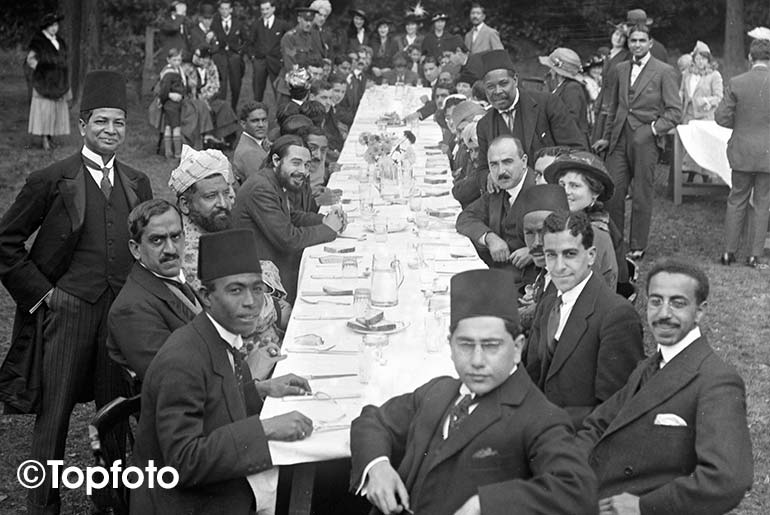
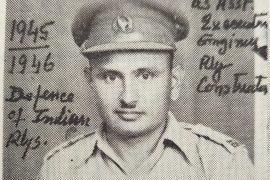
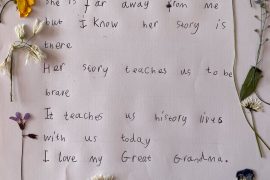
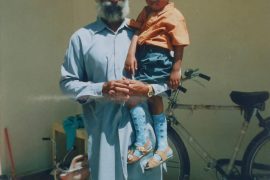
Comments are closed.